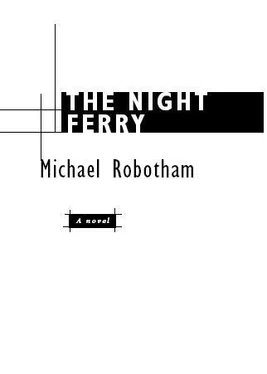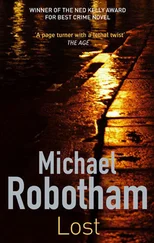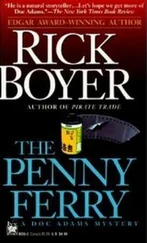Each of the streets is different, he explains. The Oudekerksteeg is the African quarter. The South Americans are on Boomsteeg; the Asians on Oudekennissteeg and Barndesteeg, while Bloedstraat has the transsexuals. The Eastern European girls are on Molensteeg and along the Achterburgwal.
“It is getting harder to make money. A prostitute needs at least two clients before her rent for the window is paid. Another four clients are needed for the pimp’s share. Six men have used her and she still hasn’t earned anything for herself.
“In the old days prostitutes would save up to buy a window and then become the landlady, renting to other girls. Now companies own the windows and sometimes use them to launder money by claiming the girls earn more than they do.”
Hokke doesn’t want to sound melancholy but can’t help himself. He yearns for the old days.
“The place is cleaner now. Less dangerous. The problems have gone out farther, but they never disappear.”
We are walking alongside a canal, past strip clubs and cinemas. From a distance the sex shops look like souvenir sellers. Only up close do the bright novelty items become dildos and fake vaginas. I am fascinated and disturbed in equal parts; torn between looking away and peering into the window to work out what the various things are for.
Hokke has turned into a lane and knocks on a door. It is opened by a large man with a bulging stomach and sideburns. Behind him is a small room barely big enough for him to turn around. The walls are lined with porn videos and film reels.
“This is Nico, the hardest working projectionist in Amsterdam.”
Nico grins at us, wiping his hands on his shirtfront.
“This place has been here longer than I have,” explains Hokke. “Look! It still shows Super-8 films.”
“Some of the actresses are grandmothers now,” says Nico.
“Like Gusta,” adds Hokke. “She was very beautiful once.”
Nico nods in agreement.
Hokke asks him if he knows of any Afghani girls working the windows or clubs.
“Afghani? No. I remember an Iraqi. You remember her, Hokke? Basinah. You had a beating heart for her.”
“Not me,” laughs the former policeman. “She had problems with her landlord and wanted me to help.”
“Did you arrest him?”
“No.”
“Did you shoot him?”
“No.”
“You weren’t a very successful policeman, were you, Hokke? Always whistling. The drug dealers heard you coming from two streets away.”
Hokke shakes his head. “When I wanted to catch them I didn’t whistle.”
I show Nico the photograph of Samira. He doesn’t recognize her.
“Most of the traffickers deal with their own. Girls from China are smuggled by the Chinese; Russians smuggle Russians.” He opens his hands. “The Afghanis stay at home and grow poppies.”
Nico says something to Hokke in Dutch.
“This girl. Why do you want to find her?”
“I think she knows about a baby.”
“A baby?”
“I have a friend.” I correct myself. “I had a friend who faked her pregnancy. I think she arranged to get a baby from someone in Amsterdam. My friend was murdered. She left behind this photograph.”
Hokke is filling his pipe again. “You think this baby was being smuggled?”
“Yes.”
He stops in mid-movement, the match burning in his fingers. I have surprised him—a man who thought he had seen and heard it all after thirty years in this place.
Ruiz is waiting outside, watching the carnival of need and greed. There are more people now. Most have come to see but not touch the famous red light district. One group of Japanese tourists is shepherded by a woman holding a bright yellow umbrella above her head.
“Samira had a brother,” I explain to Hokke and Nico. “He went missing from the care center at the same time. Where would he go?”
“Boys can also become prostitutes,” says Hokke, in a matter-of-fact way. “They also carry drugs or pick pockets or become beggars. Look at Central Station. You’ll see dozens of them.”
I show them the charcoal drawing of Hassan. “He had a tattoo on the inside of his wrist.”
“What sort of tattoo?”
“A butterfly.”
Hokke and the projectionist exchange glances.
“It is a property tattoo,” says Nico, scratching his armpit. “Somebody owns him.”
Hokke stares into the blackened bowl of his pipe. Clearly, it is not good news.
I wait for him to explain. Choosing his words carefully, he reveals that certain criminal gangs control areas of the city and often claim ownership over asylum seekers and illegals.
“She should stay away from de Souza,” says Nico.
Hokke holds a finger to his lips. Something passes between them.
“Who is de Souza?” I ask.
“Nobody. Forget his name.”
Nico nods. “It is for the best.”
There are more windows open. More customers. The men don’t raise their eyes as they pass one another.
Prostitution has always confused me. When I was growing up, movies like Pretty Woman and American Gigolo glamorized and sanitized the subject. My first glimpse of real prostitutes was with Cate. We were in Leeds for an athletics meeting. Near the railway station, where most of the cheap hotels could be found, we saw women on street corners. Some of them appeared washed out and unclean—nothing like Julia Roberts. Others looked so carnivorous that they were more like angler fish than objects of desire.
Maybe I have a naïve view of sex as being beautiful or magical or otherworldly. It can be. I have never liked dirty jokes or overtly sexual acts. Cate called me a prude. I can live with that.
“What are you thinking, sir?”
“I’m wondering why they do it,” Ruiz replies.
“The women?”
“The men. I don’t mind someone warming my toilet seat for me but there’s some places I don’t want to come second, or third…”
“You think prostitution should be illegal?”
“I’m just making an observation.”
I tell him about an essay I read at university by Camille Paglia, who claimed that prostitutes weren’t the victims of men but their conquerors.
“That must have set the feminists afighting.”
“Rape alarms at ten paces.”
We walk in silence for a while and then sit down. A swathe of sunshine cuts across the square. Someone has put up a soapbox beneath a tree and is preaching or reciting something in Dutch. It could be Hamlet . It could be the telephone directory.
Back at the hotel we start making calls—working through a list of charities, refugee advocates and support groups. Hokke has promised us more names by tomorrow. We spend all afternoon on the phones but nobody has any knowledge of Samira. Perhaps we are going to have to do this the old-fashioned way—knocking on doors.
On Damrak I find a print shop. A technician enlarges the photograph of Samira and uses a color copier to produce a bundle of images. The smell of paper and ink fills my head.
Ruiz will take the photograph to Central Station and show it around. I’ll try the women in the windows, who are more likely to talk to me. Ruiz is completely happy with the arrangement.
Before I leave I call Barnaby Elliot to ask about the funerals. The moment he hears my voice he starts accusing me of having burned down Cate and Felix’s house.
“The police say you were there. They say you reported the fire.”
“I reported a break-in. I didn’t start a fire.”
“What were you doing there? You wanted her computer and her letters. You were going to steal them.”
I don’t respond, which infuriates him even more.
“Detectives have been here asking questions. I told them you were making wild allegations about Cate. Because of you they won’t release the bodies. We can’t arrange the funerals—the church, the readings, the death notices. We can’t say goodbye to our daughter.”
Читать дальше












